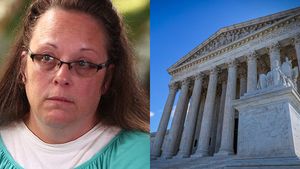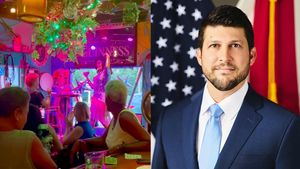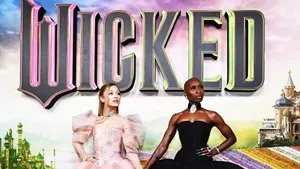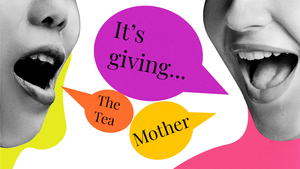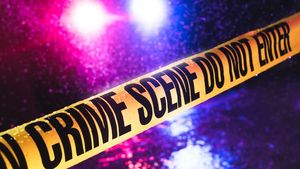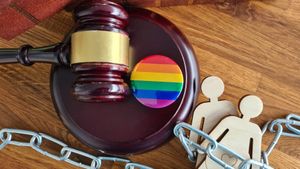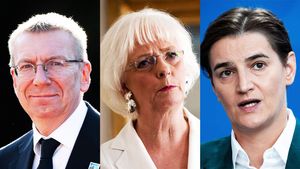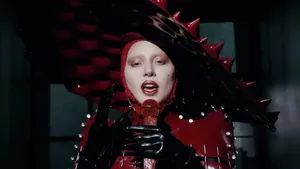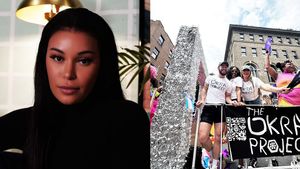
Treatment GuideJust DiagnosedSex & DatingAfrican AmericanStigmaAsk the HIV DocPrEP En EspañolNewsVoicesPrint IssueVideoOut 100
CONTACTCAREER OPPORTUNITIESADVERTISE WITH USPRIVACY POLICYPRIVACY PREFERENCESTERMS OF USELEGAL NOTICE
© 2025 Pride Publishing Inc.
All Rights reserved
All Rights reserved
By continuing to use our site, you agree to our Privacy Policy and Terms of Use.
On the evening of October 4, 2004, I found myself nauseated and weak, traveling to and from the bathroom after a five-day hospital stay where I'd lost weight that I didn't need to lose. I was struggling to manage basic life tasks so I was staying with a friend who took care of me as I struggled to eat food that disgusted me and drink liquids to keep me hydrated. While I was enormously grateful to be alive, I was miserably sick and stunned by my HIV diagnosis one day prior. 'It's not the end of the world,' I told myself. 'It's not the end of the world. It's not the end of the world.' I truly believed the words, but I also needed them for reassurance--with anxiety and depression lurking under the surface and a sense of dread pervading how I looked at everything. How much time do I have left? Will I be constantly sick? How will I tell others? And I vividly recall standing near my friend's kitchen sink, holding a glass of water in one hand and Lexiva, Truvada, and Norvir in the other. It was official. I had HIV. In those days I was sick and vulnerable, terrified of what my future held. I knew on the one hand that HIV is more manageable than it once was. I had plenty of HIV-positive friends who had full lives and were happy and fulfilled. But I still remembered the early AIDS films--An Early Frost and the like--that left an indelible print that AIDS was fatal and that I would die a horrible death. I was scared. I am in a far different place today: healthy, medication-compliant, expanding my circle of support, and dealing with my issues of depression and self-destruction. The days of lost weight and marginal health are far behind me. My daily regimen is still working. I take my meds daily, almost like I take my vitamins or allergy medication. I take medication in front of others. I know dozens and dozens of HIV-positive people--and no longer feel alone. I am living with HIV, no longer overwhelmed or terrified, and I accept it. I'm calm, even. It is tempting in such moments of serenity to presume that I have done the emotional and spiritual work to attain such serenity. And while I certainly have done my fair share and do not wish to discount my efforts, I must be honest with myself. How did it feel when my T cells were skipping along in the 700s but at my next checkup were suddenly 525? How did it feel when my sinus infection kept recurring despite rounds of antibiotics? How did it feel when I read the obituaries in the local gay paper? How did it feel when my friend who has lived with the virus for 20-plus years became extremely ill? The fact is that I am still very healthy (my doctor says I'm more healthy than her HIV-negative patients), and even with this fact, I can become shaky when confronted with the least bit of disappointing news. While I tend to be hopeful regarding my status, I realize that it's easy to be so when things are going well. However, when challenges arise, so do the old fears. Right now I use these feelings--fear and hope--to center myself, recognizing that neither holds the complete truth. Rather, as with most things in life, the truth is in the middle. Optimism balances fear and fear balances optimism. Fransen is a licensed clinical social worker who is in private practice in Chicago.
From our Sponsors
Most Popular
BREAKING: Supreme Court rules to save free access to preventive care, including PrEP
June 27 2025 10:32 AM
Thanks to U=U, HIV-positive people can live long, happy, healthy lives
July 25 2025 2:37 PM
The Talk: Beyond the exam room
August 13 2025 3:15 PM
“So much life to live”: Eric Nieves on thriving with HIV
September 03 2025 11:37 AM
Plus: Featured Video
Latest Stories
Amazing People of 2025: Javier Muñoz
October 17 2025 7:35 PM
It’s National PrEP Day! Learn the latest about HIV prevention
October 10 2025 9:00 AM
“I am the steward of my ship”: John Gibson rewrites his HIV narrative
September 16 2025 2:56 PM
The Talk: Owning your voice
August 25 2025 8:16 PM
The lab coat just got queer
August 21 2025 10:00 AM
Messenger RNA could be the key to an HIV vaccine — but government cuts pose a threat
August 20 2025 8:02 AM
The Talk: Navigating your treatment
August 01 2025 6:02 PM
The Talk: Starting the conversation
July 25 2025 4:47 PM
How the Black AIDS Institute continues to fill in the gaps
July 25 2025 1:06 PM
“I felt like a butterfly”: Niko Flowers on reclaiming life with HIV
July 23 2025 12:22 PM
Dancer. Healer. Survivor. DéShaun Armbrister is all of the above
July 02 2025 8:23 PM
1985: the year the AIDS crisis finally broke through the silence
June 26 2025 11:24 AM
VIDEO: A man living with HIV discusses his journey to fatherhood
June 10 2025 4:58 PM
Trump admin guts $258 million in funding for HIV vaccine research
June 03 2025 3:47 PM
Grindr is reminding us why jockstraps are so sexy and iconic
May 02 2025 5:36 PM
HRC holds 'die-in' to protest Trump health care cuts
April 28 2025 2:11 PM
Two right-wing Supreme Court justices signal they may uphold access to PrEP and more
April 21 2025 4:10 PM
Trending stories
Recommended Stories for You




























